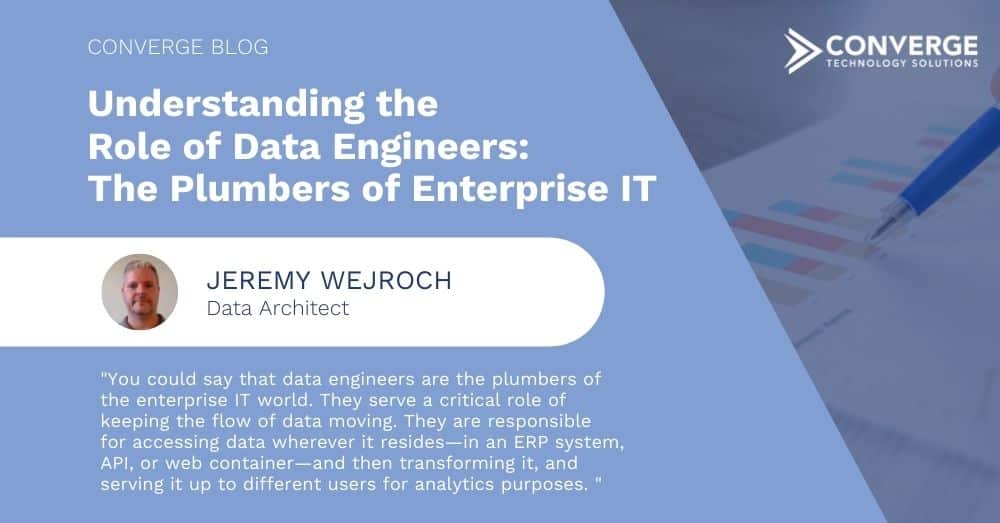There are a lot of moving parts involved in running a successful IT organization. For example, data scientists, analysts, infrastructure personnel, and platform teams all have important roles to play. Underlying all of their work is data. Each of these IT roles need access to timely, accurate, and complete data to do their work effectively in support of the goals of their enterprises.
That’s what makes data engineers so important. You could say that data engineers are the plumbers of the enterprise IT world. They serve a critical role of keeping the flow of data moving. They are responsible for accessing data wherever it resides—in an ERP system, API, or web container—and then transforming it, and serving it up to different users for analytics purposes.
With this in mind, let’s take a closer look at what data engineers do and how their role in enterprise IT continues to evolve.
What is data engineering?
Simply put, data engineering is designing and managing the flow of data. It’s the process of extracting raw data, transforming the data, and presenting it in a way that is usable to the organization. That’s why data engineering is like data plumbing.
What is the role of a data engineer?
Data engineers are the data plumbers. They build data pipelines that carry data from one place to another. They are responsible for the “data infrastructure”. This involves designing, building, and maintaining the processes that ingest, store, transform, and make data accessible in a way that is useful to enterprise users—generally for the purposes of analytics. Data engineers are also responsible for monitoring data pipelines and data quality. Here, they address two critical questions: Did my data arrive on time? Was the data what I expected?
The role of the data engineer has evolved over the years. Even though the term data engineer is fairly new, data engineers have been around for a while. Think about DBAs, ETL developers, data modelers, and so on. The cloud and big data is what really pushed data engineering forward.
Historically, organizations depended on data warehouses that were expensive, inflexible, and had long development timelines. This no longer worked in the era of “big data”. Data volumes exploded, variety of the data was changing, and the velocity of data was increasing. Technology and cloud adoption was also changing at a rapid pace. This is what made people rethink how they were doing things, and why.
How are data engineers optimizing analytics delivery today?
The methods for delivering timely insights and quality data have come a long way. One way that data engineers are supporting IT organizations today is by working within a DataOps team. Other members of this team often include data scientists, data analysts, and infrastructure operations. IBM defines DataOps as “the orchestration of people, process, and technology to deliver trusted, high-quality data to data citizens fast.”
DataOps is a data analytics process that applies DevOps concepts to data management. DevOps is a software development concept that increases development speed, quality, and agility in software development. The DevOps process leverages automated testing and code deployment (CI/CD) to reduce time to market and defects. DevOps also leverages Agile development to complete projects faster with less defects. DataOps, or DevOps for data, applies those concepts to data analytics pipeline projects.
In a DataOps environment, all code should be in a central repository. The approach calls for automating as much as possible, from testing to deployments. Data is continually monitored for changes and quality. And processes are made to be repeatable to be able to quickly recover from failures. To be most effective, DataOps teams should be Agile and able to deliver features, pipelines, and updates quickly.
Exploring data engineering at your organization
Whether an organization is hiring internally or reaching out to a partner for analytics support, it’s important that the role of the data engineer is present and clearly defined within an IT organization. A good partner brings data engineering talent that can collaborate with other key IT roles and support effective data-delivery methodologies such as DataOps.
Whichever route you choose, now is a great time to review your own IT operation and consider how data engineering can best optimize the flow of data across your organization.





